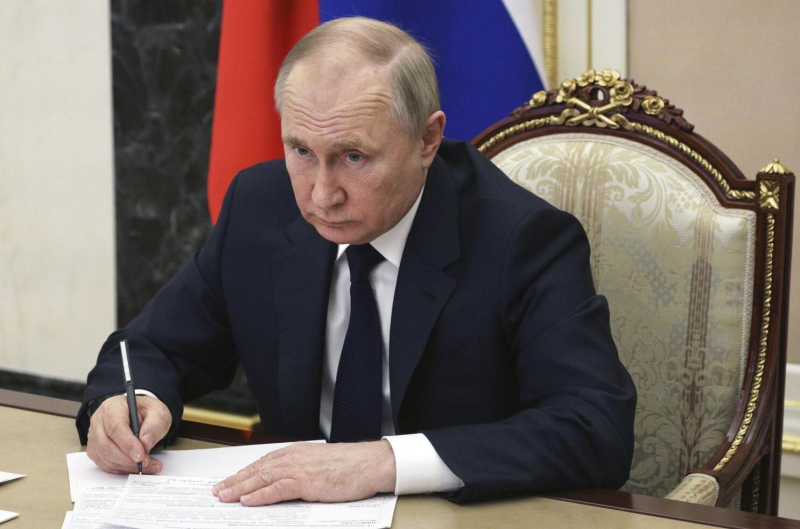The Kremlin is increasing control over the Russian media space / AP photo A Russian millennial blogger received an award from Vladimir Putin. The head of the Kremlin is afraid of criticism from citizens of his own country, so he is trying to buy military bloggers with awards. On November 16, Putin awarded the founder of the Rybar telegram channel, Mikhail Zvinchuk, the Russian Order of Merit for the Fatherland, 2nd class, for supporting Russia’s full-scale invasion of Ukraine. The Kremlin dictator has awarded a Russian millennial blogger who has previously criticized Russia's military actions during its full-scale invasion of Ukraine with a prestigious state honor. Thus, Russia continues to increase its efforts to attract mibloggers and seeks to make them loyal to the Kremlin. Russian mil blogger Mikhail Zvinchuk / photo rossmi Previously, Vladimir Putin attracted Zvenchuk, joining him to the Kremlin working group on mobilization problems on December 20, 2022. According to the Institute for the Study of War (ISW), this was the first concerted attempt by the Kremlin leader to regain control over the segment of the audience that turned to Telegram to cover the war independently of Russian state media. Following Ukrainian counter-offensives in the Kharkov and Kherson regions in the fall of 2022, during which Russian state propagandists failed to explain Russia's military failures and the deeply unpopular mobilization of 300,000 reservists, the style and focus of Rybar's war coverage changed. This change in content and tone is quite significant and is most likely the result of Putin's attempts to attract famous Russian milbloggers in order to restore the Kremlin's dominance over the Russian-language information space. It is likely that the award that Putin presented to Zvinchuk is an attempt to encourage other millionaires to offer their loyalty to the regime in exchange for praise and recognition from the Kremlin. Gazprom Media Holdings, a subsidiary of Russian state energy company Gazprom, announced on November 16 that it has acquired a majority stake in a major Russian blogging agency. The company is likely trying to increase its control over the Russian media space. Gazprom Media Holdings announced the purchase of a controlling stake (51%) of Insight People, the largest blogging agency in Russia. Gazprom Media Holdings owns the Russian video streaming platform RuTube, the Russian social network VKontakte, as well as several well-known Russian TV channels and radio stations. Gazprom Media is chaired by Alexander Zharov, who headed Roskomnadzor from 2012 to 2020. The head of Gazprom, Alexey Miller, has been heading this corporation for many years. In particular, Miller has associates in various government structures, and recent acquisitions of Gazprom Media indicate a possible increase in Miller's influence. As is known, Alexey Miller is a longtime associate of Vladimir Putin and likely has connections with the former head of the Federal Security Service (FSB) of Russia and Secretary of the Security Council Nikolai Patrushev, since Patrushev’s sons previously held senior positions in Gazprom. Order from Putin
Control over Gazprom Media Holdings
What connects Gazprom Media and the head of the Kremlin
Russian bloggers and the war in Ukraine: what is known
Control over the media space: how Putin rewards and buys bloggers for the sake of loyalty to the regime
24

